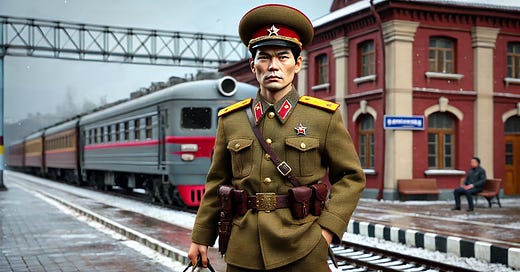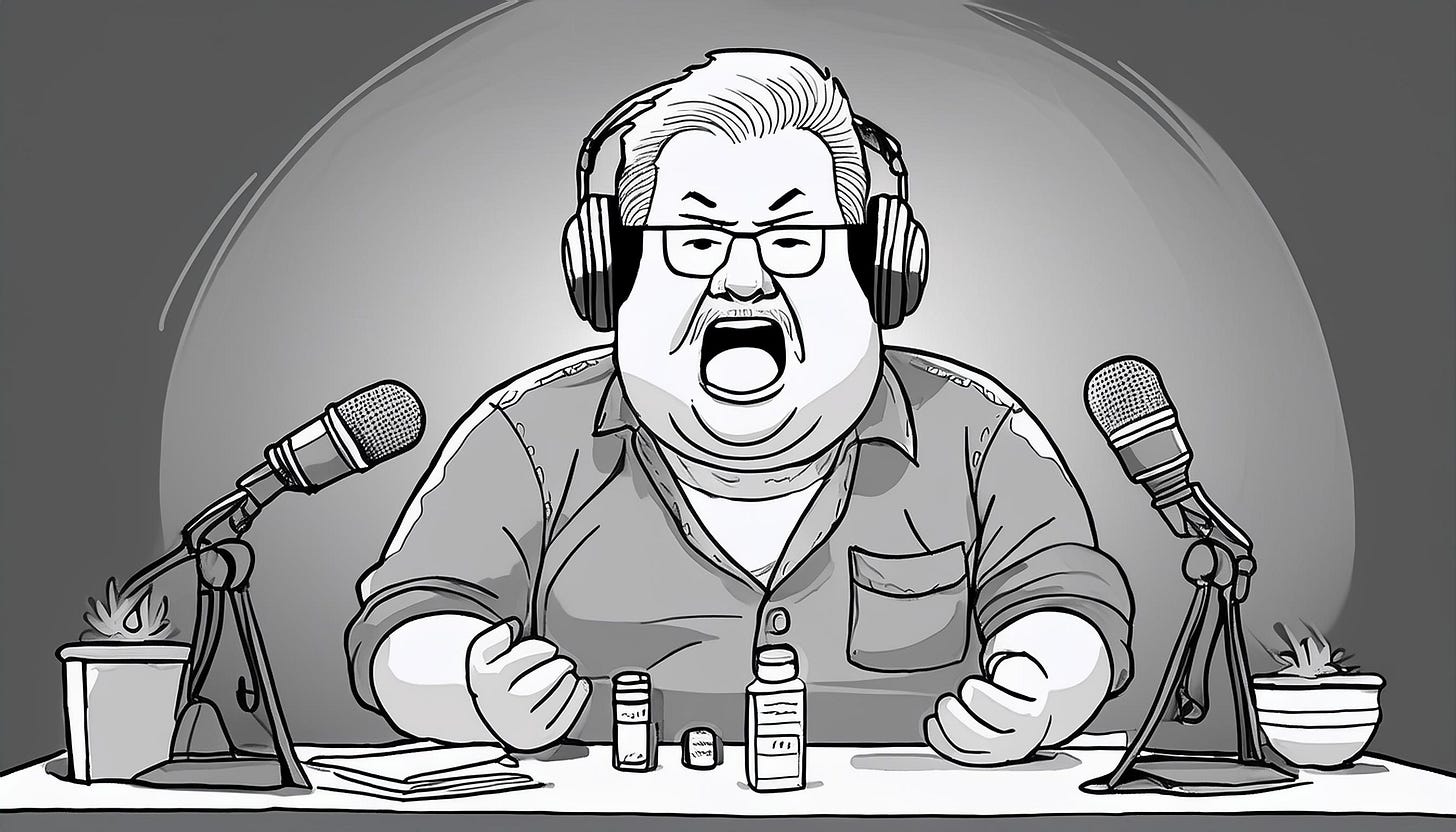
North Korea’s troops when the Ukraine conflict ends
What to do with experienced, probably cynical troops aware of the external world with an increased capacity to coordinate and act?
As the war in Ukraine winds down (hopefully), attention will turn to what happens to the foreign contingents who joined the fight—particularly North Korea’s troops deployed in support of Russian forces. While exact figures and deployments remain murky, the presence of North Korean military personnel, whether as construction troops, artillery support, or direct combatants, signalled a new phase of Pyongyang’s military diplomacy. It was a difficult decision to send troops in the first place. Once the fighting ends, North Korea will face a crucial decision: what to do with experienced, probably cynical troops aware of the external world with an increased capacity to coordinate and act.
Homecoming? The most straightforward option is the troops simply returning home. This is not without complications.
Returning troops increases the capacity of dissent to spread, coordinate and act. The same was seen in South Korea and U.S. soldiers on return from combat in Vietnam, and Russian soldiers on return from Afghanistan and Chechnya. Returning soldiers will bring back unfiltered stories about Russia's internal decay, battlefield failures, or glimpses of relative prosperity and freedom—all of which could undermine Pyongyang’s domestic propaganda.
There's also the possibility of defections during the return process, especially if transiting through areas with porous borders or weak surveillance. Some speculate that the troops sent to Russia are from politically suspect backgrounds: prison units, or economically desperate provinces.
Having served in a foreign war, especially one under Russian command, could make them both politically sensitive and potentially disillusioned with the regime.
If repatriation does occur, it's likely to be gradual and tightly controlled. Some returnees will face interrogation, re-education, or even punishment, depending on their conduct abroad. A more optimistic take would see the regime portraying them as war heroes and using them to promote state prestige - if they’re politically reliable.
Peacekeepers. A second option could see North Korean forces remaining in Russian-occupied territories as a “peacekeeping” or monitoring force. This would allow Russia to preserve its manpower while maintaining pressure on Ukraine and NATO. These troops could guard borders, infrastructure, or act as a second-tier force behind Russian lines, freeing up Russian units for redeployment elsewhere.
This comes with strategic risks. By remaining in Europe, North Korean forces could find themselves on the front line if tensions flare up again, this time potentially facing European or even NATO troops.
North Korean troops on the border could even be used to increase pressure on European states in much the same way that North Korea has expertly played South Korea and the U.S. with crisis diplomacy along the DMZ.
This could escalate diplomatic tensions far beyond the Korean Peninsula, placing North Korea in the middle of a wider geopolitical confrontation. Still, the symbolic value of such a presence—suggesting that Russia is not isolated and has international support—could be attractive to both Moscow and Pyongyang. And for North Korea this could mark a permanent military footprint beyond East Asia, a first in North Korean history.
Redeployment? Another scenario would see North Korean troops fully integrated into Russian military units, either formally or informally - almost like a Russian foreign legion. They could become a permanent fixture of the Russian military (and a permanent source for Pyongyang’s military tech, military experience, and cash or goods). They could be redeployed elsewhere in Russia—such as the Caucasus, Central Asia, or even the Far East—and would give Russia manpower flexibility while rewarding Pyongyang with weapons, fuel, or cash. Mercenary money!
This option may appeal to Pyongyang if it cements a long-term military alliance with Moscow and leads to more advanced military training for his forces.
However, control is key. North Korean troops would need to remain tightly monitored to prevent desertions or independent thought, and cultural or logistical differences could cause friction within Russian units.
Nonetheless, such redeployments would strengthen the perception of a Russia–North Korea axis, particularly if used in proxy conflicts or future crisis zones where both countries seek to challenge U.S. or Western influence. On the flipside, Russia may want to forget this debacle of a war necessitating North Korean troops ever happened - and this would be a permanent reminder.
Russian PMCs. Another pathway is the quiet transfer of North Korean personnel to one of the many Russian Private Military Companies (PMCs). These mercenary outfits operate with plausible deniability, often in Africa, the Middle East, and post-Soviet conflict zones. North Koreans could be deployed as contractors—highly controlled, low-cost labor in dangerous environments.
For Pyongyang, this would be a goldmine. Unlike formal deployments, which require political explanations, PMC contracts could channel hard currency directly to the regime, bypassing sanctions and public scrutiny. Soldiers would be earning wages—often in cash—of which the majority would go to the state.
North Korean mercenaries would conceivably make more money than construction workers, agricultural workers, or forestry workers already in Russia!
And what a way to get rid of pesky politically difficult prisoners! This mercenary model mirrors what North Korea has done for decades with construction workers and miners in Russia, Africa and the Middle East - and also has a tad more of a risky edge that has marked North Korea’s behavior since Kim Jong-un took command.
Russia would also benefit. By outsourcing deployments to PMCs, they avoid domestic political backlash and keep operations unofficial. The use of North Koreans as expendable labor or combat support would reflect the brutal cost calculus both regimes are willing to accept.
North Korean-Led PMC. Lastly, and perhaps the most audacious and profitable route would be the creation of a North Korean-led PMC, under Russian guidance and sponsorship but operating semi-independently. This would transform Pyongyang’s foreign military footprint from a diplomatic favor into a sustainable export industry.
Such a force could be deployed in regions where Russia seeks influence but wants to avoid direct entanglement—Libya, Syria, Sudan, or even Venezuela. A North Korean PMC could offer services ranging from security and construction to counter-insurgency, all under the guise of private enterprise.
This would allow the regime to monetize its surplus of loyal, militarized personnel while testing new forms of asymmetric influence abroad. The income stream could rival that of its current illicit trades—such as arms sales and cybercrime—while creating deniability for both North Korea and Russia.
A North Korean PMC could potentially work extremely well side by side with both arms sales and cybercrime.
However, this also raises serious questions: how would international law respond to a nuclear-armed state exporting military services? Would this violate existing sanctions? And how would China, North Korea’s main patron, view such a bold move?
I wanna go home!
In the end, it’s probably pretty fair to say that near every Russian and Ukrainian in this conflict just wants to go home. North Korea’s troops are conceivably much the same. The post-Ukraine landscape offers Pyongyang a variety of military and economic opportunities but all are fraught with risk - and entail a degree of individual compliance, sacrifice, and deprivation. Whether North Korean troops return home, stay as occupiers, join the Russian army, or evolve into a paramilitary export force, each path will reshape Pyongyang’s role on the global stage.
The Ukraine war has already redefined alliances. What comes next could entrench a new model of authoritarian military cooperation—one where North Korea is no longer just a rogue state, but an active player in foreign wars for profit and power.






